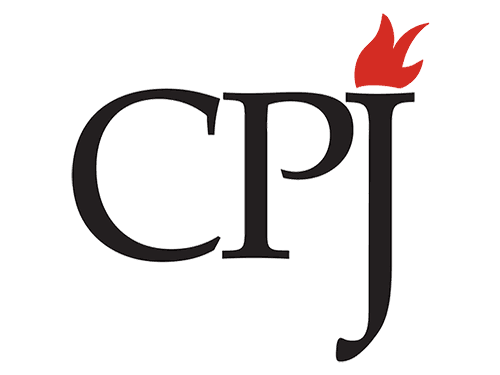September 18, 2017
His Excellency Petro Poroshenko,
President of Ukraine
Bankova st, 11
Kiev, Ukraine
Sent via e-mail and facsimile: [email protected];[email protected];
+380 44 255 6161
Dear President Poroshenko,
We at the Committee to Protect Journalists (CPJ), an independent press freedom advocacy organization, would like to thank you for meeting with us in July to discuss the investigation into Pavel Sheremet’s death. We found your stated commitment to press freedom encouraging and appreciate the compassion you showed toward Sheremet’s family. However, we are deeply disappointed by the lack of progress in the investigation. Now, we feel compelled to write to express our deep concern about actions taken by Ukraine’s state security service (SBU) that pose a significant threat to press freedom in Ukraine.
In at least seven separate incidents documented by CPJ in the past two months the SBU has targeted newsrooms and journalists on accusations that appear politically motivated, and in retaliation for critical reporting.
In the latest instance on September 14, an SBU representative visited the Kiev offices of the independent news website Ukrainska Pravda, and delivered a letter to Editor-in-Chief Sevgil Musayeva demanding the outlet take down an article critical of the Ukrainian government, according to a CPJ interview with Musayeva. The article, which was originally published on January 24, described the government’s failure to prioritize upgrading the country’s military defense capabilities.
In three separate cases, on August 14, 29, and 30, SBU agents expelled international journalists, and barred them from the country for three years. OnAugust 14, the SBU detained Tamara Nersesyan, a special correspondent for the Russian state broadcaster VGTRK, in the street in Kiev, and brought her to the SBU headquarters where she was questioned for three hours about her reporting in eastern Ukraine. On August 29, the SBU announced it had barred Spanish freelance journalists Antonio Pampliega and Ángel Sastre over their reporting on the conflict in the east, and for posting allegedly anti-Ukrainian messages on social media. On August 30, unknown people grabbed Russian journalist Anna Kurbatova on the street in the center of Kiev, and she was later deported.
The SBU said the same day that Kurbatova had been banned from entering Ukraine for three years for working as a “propagandist,” and for producing material “harmful to Ukraine’s national interests.” “This is what will happen to everyone who dares to disgrace Ukraine,” SBU spokesperson Olena Gitlyanskasaid on her Facebook page.
The SBU has also brought anti-state charges against freelance journalist Vasily Muravitsky, a reporter and columnist based in Zhytomyr, and has been holding him since August 1. If convicted, Muravitsky, who reported on politics, the annexation of Crimea, and the fighting in Donbass, faces up to 15 years in prison.
The website Strana has also come under SBU pressure. The SBU searchedStrana‘s premises as well as the homes of at least two of its journalists on August 8, following an earlier SBU raid in June, and confiscated a flash drive from the site’s editor-in-chief, Igor Guzhva. Guzhva is under investigation for allegedly disclosing state secrets; the SBU has also accused Strana of disclosing state secrets.
We also find security forces’ July 14 raid on the Kiev offices of Media Holding Vesti, which includes Radio Vesti, the newspaper Vesti, and the site Vesti-ukr.com, to be deeply troubling. Chief Military Prosecutor Anatoliy Matios led some 80 officers, outfitted with armor, facemasks, and machine guns, into the Vesti building in search of evidence in a fraud investigation. During the course of the raid, the radio station’s broadcast was briefly knocked off the air, and officers questioned 30 journalists and searched their phones.
Authorities are dividing the press corps into those perceived as friendly to Ukraine, and those branded unpatriotic, a practice that counters your government’s efforts to transform the country into a modern, European democracy. For example, a member of parliament last month accused Sergiy Tomilenko, head of the National Union of Journalists of Ukraine, of “[acting] against the informational security of Ukraine” by criticizing the raid on Strana.
The SBU has an important role in ensuring Ukraine’s national safety and security. However, it is essential that it refrain from harassing media outlets and targeting journalists in any way for their work.
We call on you, Your Excellency, to ensure that reporters can work freely, without fear of reprisal, and with the full protection their profession merits. Publically denouncing the recent SBU actions, and reaffirming your commitment to ensuring journalists’ safety would show your commitment to defending democratic institutions and European values in Ukraine.
Thank you in advance for your consideration and ongoing commitment to press freedom.
Sincerely,
Joel Simon
CPJ Executive Director
Cc list:
Vasyl Hrytsak, Head of the Security Service of Ukraine
Jean-Claude Juncker, President of the European Commission
Donald Tusk, President of the European Council
Antonio Tajani, President of the European Parliament
Federica Mogherini, High Representative of the EU for Foreign Affairs and Security Policy
Johannes Hahn, EU Commissioner for European Neighbourhood Policy and Enlargement Negotiations
Stavros Lambrinidis, EU Special Representative for Human Rights
Hugues Mingarelli, Head of the EU Delegation to Ukraine
Mykola Tochytskyi, Head of the Mission of Ukraine to the EU
Nils Muižnieks, Council of Europe Commissioner for Human Rights
Harlem Désir, OSCE Representative on Freedom of the Media
Valeriy Chaly, Ambassador of Ukraine to the United States
Marie Yovanovitch, U.S. Ambassador to Ukraine
Alan Rusbridger, Lady Margaret Hall, Oxford, Member, CPJ Board of Directors



















































